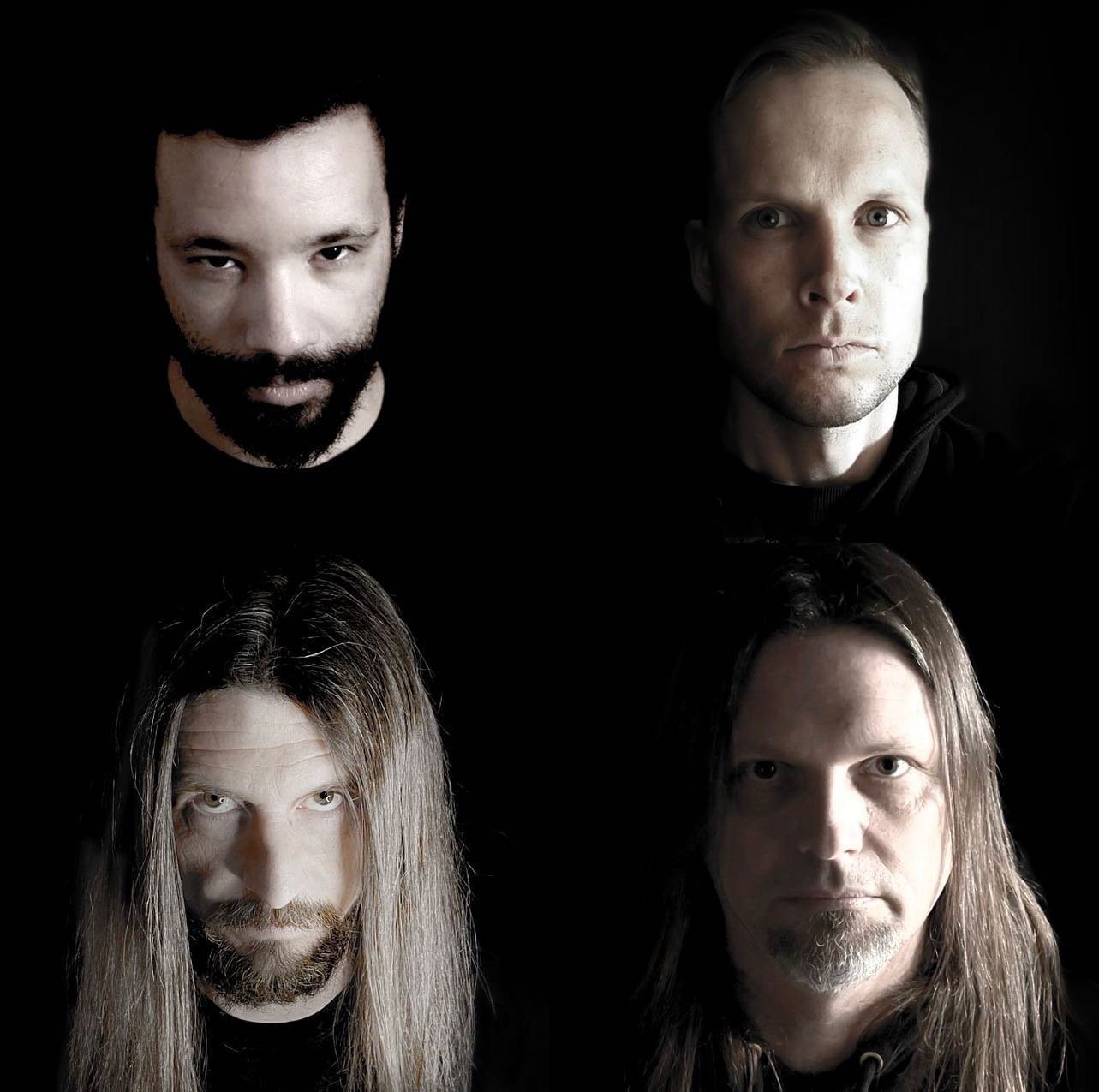Ashen Horde has been on my radar since vocalist Stevie Boiser (Inferi, Equipoise) joined the act for their 2017 EP, The Alchemist. However, the progressive extreme metal project existed long before Boiser joined their ranks, starting as guitarist/singer Trevor Portz’s outlet for solo music with 2013’s Ab Initio EP and 2014’s debut album, Sanguinum Vindicta. Despite adding members to the band (Norse’s Robin Stone joins the band on drums, and Abhoria’s Igor Panasewicz joins the act on bass), the project has been consistent in their melodic, progressive approach to extreme metal over the past decade. However, on Antimony, Ashen Horde sound more polished, ambitious, and precise than ever.
The lyrics on this record explore the unsolved and fatal poisoning of Charles Bravo in 1876 from, you guessed it, Antimony. The suitably macabre theme feels appropriate from the music we hear on the record, starting with the instrumental “The Summoning”. While many bands in this (and, to be fair, many other) subgenre(s) might open an album with a symphonic oeuvre, Ashen Horde rejects this trend. Instead, the first track feels like a bit of a sampler for what’s to come, with its melodic but creeping guitars and midtempo pace. It wouldn’t be hard to picture a detective pacing reflectively to such a track. In addition to the eerie tone, another immediately apparent new facet of the record is its production. The sonic quality of the record is notably more clear and powerful than its predecessors.
Compared to the slower, reflective opener, “Throes of Agony” opens as violently as its title suggests. There is a back and forth between blast beats and quieter sections, masterfully pulled together by Boiser’s layered shrieks and growls. There have always been blackened elements to Ashen Horde’s sound, but Boiser’s vocal range brings them a new level of ferocity. However, it is not just black metal that features in this group’s maelstrom of influences – the jazzy chording, odd time signatures, and mid-tempo of progressive death metal groups like Opeth also feature prominently, as is heard in this track’s mid-section.
“The Consort” carries that creeping melodicism further in its eerily chiming opening arpeggios, and “The Barrister” has a moody, disjointed intro that is one of my favourite on the albums. Portz’s singing appears for the first time on this album here. His Alice In Chains inflected vocal delivery shines particularly bright here, especially when doubled by Boiser’s blackened shrieks.
The doomy, melodic opening of “The Courtesan” again demonstrates what I think is my favourite element of Ashen Horde’s diverse sound – when they slow down and build atmospheres that further the lyric’s narrative. Of course, part of what makes these sections so enticing and enjoyable is their contrast to the precisely-executed faster and more technical pieces that feature throughout this song and the remainder of the album.
Grungy, technical, blackened, progressive, doomy, melodic, atmospheric – many adjectives describe Antimony. It is this combination of diverse influences honed into a cohesive whole that makes this record the most ambitious, polished, and, in my opinion, best album from Ashen Horde so far. With stronger production and their current line-up in place, the band seem more equipped to realize their vision than ever. This is a strong entry in the act’s already solid discography, and will appeal to many fans of progressive and extreme metal.






